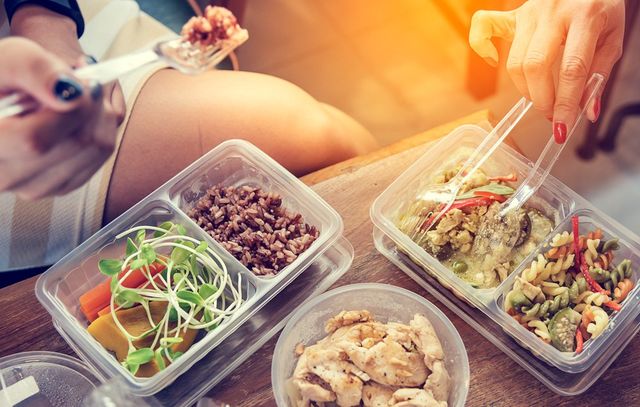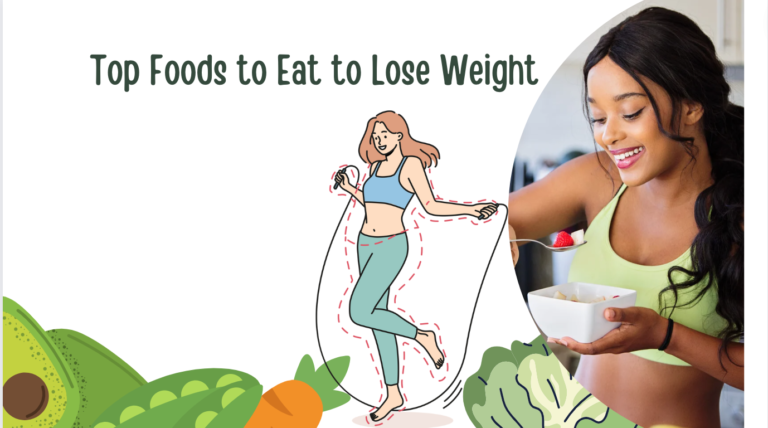Drop Pounds Deliciously: 10 Healthy Meals for Weight Loss
In the labyrinth of trendy diets and quick-fix weight loss tricks, it’s easy to overlook the most straightforward path to a healthier body: natural, wholesome meals. Healthy Meals for Weight Loss is your compass for better health and a leaner physique. Let’s unwrap the wealth of nature together, discovering nutritious meals that will not only tantalize your taste buds but also trim your waistline.
The Connection Between Diet and Weight Loss
The mass-produced food products prevalent today have led to a massive miscommunication between our bodies and brains. Eating highly processed foods can mask feelings of hunger, leading us to overeat without realizing it. However, when we align our meals with natural, wholesome foods, the communication pathways between our belly and brain respond accordingly— informing us accurately when we are full.

In this context, weight loss isn’t about counting every calorie ingested or obsessing over ‘forbidden’ foods. Instead, it’s an invitation to deepen your understanding of how different foods affect your body’s natural rhythm and metabolism. Finding the symbiosis in this intricate dance could achieve sustainable weight loss while improving overall well-being. The correlation between diet and weight loss isn’t merely a one-way street; think of it as a harmonious waltz filled with discovery at each turn.
Top Healthy Recipes for Weight Loss
Eating healthy is essential for weight loss; plenty of delicious recipes can help you achieve your goals. Here are some top healthy recipes for weight loss:
1. Grilled Chicken Salad:
Grilled chicken breast with colorful vegetables like lettuce, cherry tomatoes, cucumber, and bell peppers. Dress with a light vinaigrette or lemon juice for added flavour.
2. Quinoa and Black Bean Bowl:
Cook quinoa and mix it with black beans, corn, diced tomatoes, and your favourite seasonings. Top with avocado slices and a squeeze of lime.
3. Baked Salmon with Asparagus:
Place salmon fillets on a baking sheet, surround with asparagus, drizzle with olive oil, and season with herbs and lemon. Bake until salmon is cooked through.
4. Veggie Stir-Fry:
Stir-fry a mix of colorful vegetables like broccoli, bell peppers, carrots, and snap peas in olive oil and low-sodium soy sauce. Serve with brown rice or quinoa.
5. Greek Yogurt Parfait:
Layer Greek yogurt with fresh berries, a drizzle of honey, and a sprinkle of granola for a nutritious and satisfying breakfast or snack.
6. Zucchini Noodles with Pesto:
Spiralize zucchini to create “zoodles” and toss them with homemade or store-bought pesto sauce. Top with cherry tomatoes and grated Parmesan.
7. Lentil and Vegetable Soup:
In vegetable broth, cook lentils with diced vegetables, such as carrots, celery, and onions. Season with herbs and spices for a hearty and low-calorie soup.
8. Sweet Potato and Black Bean Tacos:
Mix sweet potato cubes with black beans, red onion, and your favorite taco seasonings. Serve in whole-grain tortillas with salsa and avocado.
9. Baked Eggplant Parmesan:
Coat eggplant slices with breadcrumbs and bake them until crispy. Layer with marinara sauce and a small mozzarella cheese, then bake until bubbly.
10. Oatmeal with Berries and Almonds:
Cook oats with water or milk, then top with fresh berries, a sprinkle of chopped almonds, and a dash of cinnamon for a healthy and filling breakfast.
Benefits of Eating Healthy for Weight Loss
Eating healthy for weight loss offers numerous benefits. Here are five key advantages:
1. Weight Loss:
The most obvious benefit is that a healthy diet can help you shed excess pounds. Consuming nutrient-dense foods and controlling your calorie intake can create a calorie deficit, leading to weight loss over time.
2. Improved Metabolic Health:
A healthy diet can positively impact your metabolism. Eating nutritious foods can help regulate blood sugar levels, improve insulin sensitivity, and reduce the risk of metabolic disorders such as type 2 diabetes.
3. Increased Energy Levels:
A balanced diet gives your body energy for daily activities and exercise. Nutrient-rich foods can help stabilize blood sugar levels and prevent energy spikes and crashes, making you feel more energized throughout the day.
4. Better Overall Health:
A healthy diet reduces the risk of chronic diseases, including heart disease, hypertension, and certain cancers. Consuming various fruits, vegetables, lean proteins, and whole grains provides essential nutrients that support your overall well-being.
5. Enhanced Mental Health:
There’s a strong connection between diet and mental health. A balanced diet rich in essential nutrients can boost mood, reduce the risk of depression and anxiety, and improve cognitive function. Maintaining a healthy weight can also contribute to a positive body image and self-esteem.
Daily Meal Planning Tips for Effective Weight Loss
Effective weight loss often starts with a well-planned daily meal strategy. Here are some tips to help you plan your meals for successful weight loss:
- Balanced Breakfast: Start your day with a balanced meal, including protein, whole grains, and fruits. Oatmeal with berries and Greek yogurt is a great choice.
- Portion Control: Be mindful of portion sizes to avoid overeating. Use smaller plates and bowls to help with portion control.
- Lean Protein: Include lean protein sources like chicken, fish, and beans. Protein helps with satiety and muscle preservation.
- Fiber-Rich Foods: Incorporate plenty of fiber from vegetables, fruits, and whole grains to keep you full and aid digestion.
- Healthy Snacking: Choose nutritious snacks like almonds, carrot sticks, or Greek yogurt to curb hunger between meals.
- Hydration: Drink plenty of water throughout the day, as thirst can be mistaken for hunger. Avoid sugary drinks and excessive caffeine.
Final Thoughts
To sum up, integrating nutritious meals into your everyday life can significantly assist in shedding pounds. It’s not solely about reducing calories but also about consuming nutrient-rich foods that keep you full and energized. Remember to include a diverse range of fruits, vegetables, lean meats, and whole grains for well-rounded nutrition. Pay attention to the size of your servings and introduce minor adjustments over time for long-lasting weight reduction. Start a healthier way of living today; your body will be grateful!
FAQs
Q: How often should I eat to lose weight?
A: It’s best to have small meals every three to four hours. This helps regulate your metabolism and prevents you from feeling excessively hungry.
Q: Can I still lose weight if I eat carbs?
A: Absolutely! The key is choosing complex carbohydrates like brown rice or quinoa over simple carbs like white bread or pastries.
Q: Is cheating days okay while trying to lose weight?
A: An occasional indulgence won’t sabotage your efforts completely, but try not to make it a habit. Stay consistent with your healthy eating habits most of the time.







